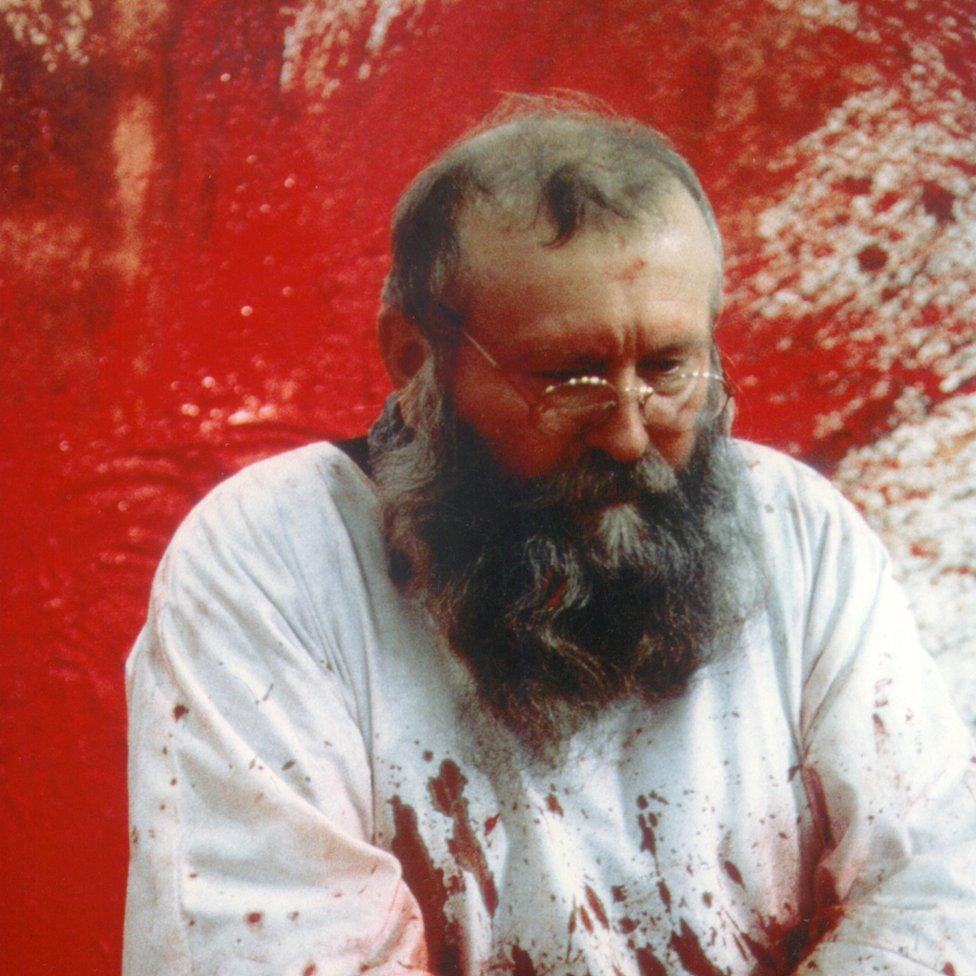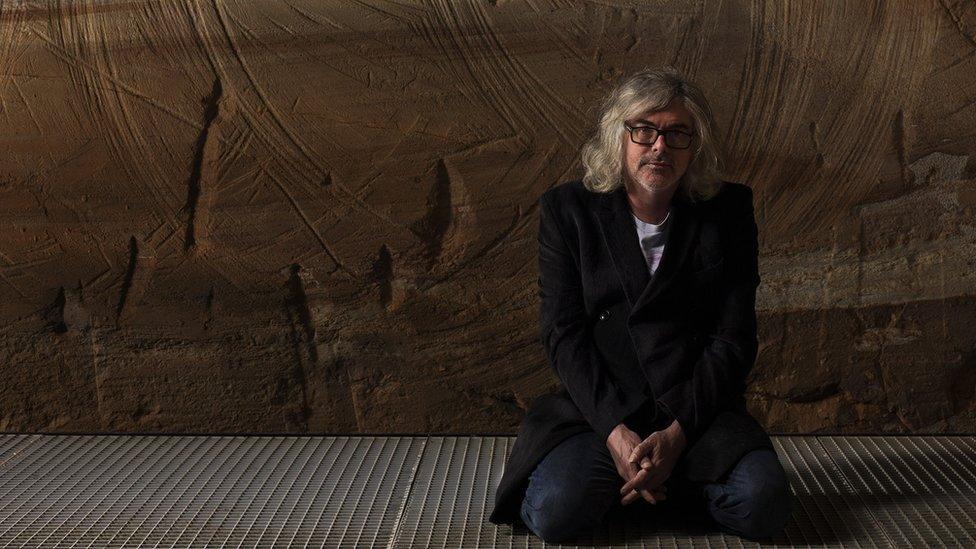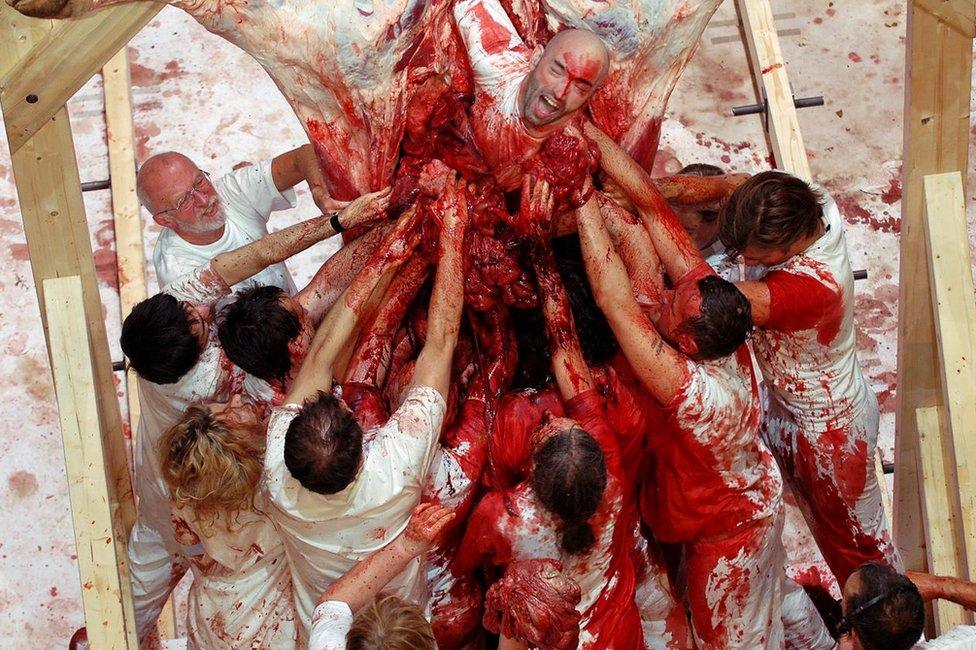'Sacrificial ritual' art stirs protest in Australia
- Published

Austrian artist Hermann Nitsch has sparked controversy in Australia
More than 11,000 people have signed a petition to stop a freshly killed bull being used at an Australian art show.
Artist Hermann Nitsch's installation, billed as a "sacrificial ritual", will be displayed by Hobart's famous Museum of Old and New Art (Mona) in June.
Although no animals will be slaughtered during the renowned artist's show, it has drawn critics including Hobart's mayor - who called it "just sick".
Mona's owner has defended the show as starting "a conversation about meat".
Warning: some readers may find an image below disturbing.
"I want clarity of intent - I want the audience to ponder why meat for food is okay... but meat for ritual or entertainment isn't," wrote, external museum founder David Walsh.
The animal would be on the market specifically for slaughter ahead of the Austrian artist's show at the annual Dark Mofo festival, organisers said.

Mona founder David Walsh has defended the performance
They said it would be locally sourced and killed humanely, and that the artist intended for the meat to be eaten afterwards.
The event warns patrons: "Please note, this work contains distressing imagery, nudity and strong adult themes, and is not suitable for children. Parental discretion is strongly advised."
However, Lord Mayor Sue Hickey said she would investigate whether her council could halt the three-hour installation.
"These are naked women and naked men on slabs pretending to be dead, and they have got animal blood pouring out of their vaginas. Is that art?" she told the Australian Broadcasting Corp.

Nitsch's art is known for its confronting imagery
"If we allowed people to pay for tickets and go to a snuff movie where people are murdered for the sake of art, is that acceptable?"
Nitsch, 78, has used confronting imagery for decades as a high-profile figure in the Viennese Actionism movement.
Ms Hickey acknowledged that Mona had reinvigorated Tasmania's economy since opening in 2011.
According to Tourism Tasmania figures, visitors who went to Mona last year spent a total of A$738m (£432m; $555m) in the state.